Our next external speaker of the STRC seminar series will be Mr . Tobiasz Dworak. The talk will take place on Wednesday, 13th of June in Lawrence Lecture Theatre at 14:00 h
Tobiasz is a highly experience Project Manager and Software Developer in the International Company Research & Engineering Center (REC-global)
I think that those of you involved in software design and development would like to hear this Seminar.
The title of the talk is: “Current state of INFER platform software. (Hands on demo)”
“I will be presenting current state of the INFER (Computational Intelligence Platform for Evolving and Robust Predictive Systems) software with emphasis on new model of predictive elements. Additionally I’ll draft further of INFER core and present live demo of the software. Open discussion will take part after the presentation. I’d like to hear wishes from all potential users of INFER”.
Best Wishes, Emili
/ Full archive
Hefce’s purse strings may be tied to the proposed Concordat to Support Research Integrity
 Universities could be forced to sign up to the proposed Concordat to Support Research Integrity as a condition of public funding under proposals being considered by the Higher Education Funding Council for England (Hefce). The Concordat–drafted by Universities UK, Research Councils UK, among others–sets out the standards required of researchers, funders and universities, but makes clear that primary responsibility for policing misconduct rests with institutions. Please see a previous blog post from 4 April which provides more detail on the Concordat. Fortunately, Bournemouth University is already on track to implement the standards set out in the Concordat.
Universities could be forced to sign up to the proposed Concordat to Support Research Integrity as a condition of public funding under proposals being considered by the Higher Education Funding Council for England (Hefce). The Concordat–drafted by Universities UK, Research Councils UK, among others–sets out the standards required of researchers, funders and universities, but makes clear that primary responsibility for policing misconduct rests with institutions. Please see a previous blog post from 4 April which provides more detail on the Concordat. Fortunately, Bournemouth University is already on track to implement the standards set out in the Concordat.
 If Hefce decides to require universities to sign up to (and effectively implement) the Concordat as a condition of public funding, this will be a huge first step towards funding being tied to research integrity principles. As BU’s research conduct officer, it brings me great joy to see Hefce helping to ensure research is done to the highest degree of integrity by requiring compliance with the concordat as part of the financial memorandum universities sign with Hefce. A paper prepared for Hefce’s board members said the move would “provide assurance to the government and the…public that public funding for research is used with integrity and that appropriate mechanisms are in place to identify and respond to…misconduct,”adding that “the other major UK funders” are also considering making compliance a condition of their grants. A final decision on this plan will be made once the final version of the Concordat is published next month.
If Hefce decides to require universities to sign up to (and effectively implement) the Concordat as a condition of public funding, this will be a huge first step towards funding being tied to research integrity principles. As BU’s research conduct officer, it brings me great joy to see Hefce helping to ensure research is done to the highest degree of integrity by requiring compliance with the concordat as part of the financial memorandum universities sign with Hefce. A paper prepared for Hefce’s board members said the move would “provide assurance to the government and the…public that public funding for research is used with integrity and that appropriate mechanisms are in place to identify and respond to…misconduct,”adding that “the other major UK funders” are also considering making compliance a condition of their grants. A final decision on this plan will be made once the final version of the Concordat is published next month.
Even more reasons to think about an Erasmus Mundus application
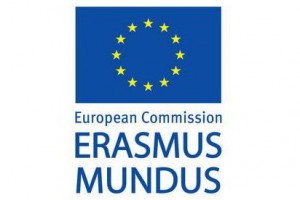 David Willetts, Minister for Universities and Science, recently submitted a response to a report ‘Recommendations to support UK Outward Student Mobility ‘ produced by a group established last year to review the obstacles and incentives to outward student mobility in the UK.
David Willetts, Minister for Universities and Science, recently submitted a response to a report ‘Recommendations to support UK Outward Student Mobility ‘ produced by a group established last year to review the obstacles and incentives to outward student mobility in the UK.
Support was given for the report which advocates the creation of a national strategy for mobility supported by ‘a body designed to facilitate and promote best practice, effectiveness and professionalism’. In fact Mr Willetts liked it so much he asked the Group’s Chair to explore possible models for a national strategy, including a national body to coordinate this, for a future meeting of the high-level International Education Advisory Forum.
Student mobility is becoming a more strategic issue for the UK, giving students a competitive advantage in the employment market and institutions an increase in international collaborative research and raising the institutions profile across the world.
The EC released figures on the Erasmus Mundus programme last week; approximately 231,000 students and 43,000 university staff received an EU grant to study or work abroad as part of the Erasmus programme in 2010-11. This represents a 7.2 per cent increase for study grants compared with the previous academic year; a 15 per cent increase in grants for work placements; and a 13.3 per cent increase for staff exchanges.
Erasmus Mundus is a great way for you to get involved with student mobility and to help you build stronger networks abroad for future research collaborations. This programme funded by the EC is designed especially to help you establish partnerships with institutions abroad and also to allow you to study/ research/ teach internationally. You can read more on the Erasmus Mundus scheme on my previous blogpost.
Congratulations to BU’s newly appointed NERC reviewers!
 Congratulations to Prof Matthew Bennett and Prof Rudy Gozlan who have both been appointed as reviewers to NERC.
Congratulations to Prof Matthew Bennett and Prof Rudy Gozlan who have both been appointed as reviewers to NERC.
The NERC Peer Review College provides assessments, advice and guidance across NERC’s range of research investments. However, members are most involved in reviewing Responsive Mode research proposals and participating in Responsive Mode moderating panel meetings. The are currently c. 440 college members.
This is great news for Matthew and Rudy, and also for the School of Applied Sciences and the University. Congratulations!
Join the Ageing at BU Facebook group
 The Health, Wellbeing and Ageing Research Theme invite BU staff and students interested in Wellbeing and Ageing to consider joining the AGEING AT BU facebook group. The aim of the group is to share our own work, events and reading on research, education, practice and policy that relates to older people, ageing and wellbeing. We would encourage our practice partners outside of BU to join also.
The Health, Wellbeing and Ageing Research Theme invite BU staff and students interested in Wellbeing and Ageing to consider joining the AGEING AT BU facebook group. The aim of the group is to share our own work, events and reading on research, education, practice and policy that relates to older people, ageing and wellbeing. We would encourage our practice partners outside of BU to join also.
You can join the group on Facebook here: http://www.facebook.com/#!/groups/106969319443779/
BU wins a prestigious HEA studentship!
Last week the Higher Education Academy (HEA) announced the winners of their Doctoral Programme awards, which form part of the HEA’s strategy to undertake research to develop pedagogical knowledge and evidence-based practice in higher education. The 15 awards have been made to academics to support Doctoral studentships in fields including the impact of retention strategies on part-time mature students in HE, and unpacking the dynamics of group interaction in problem-based learning.
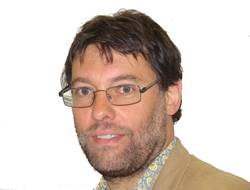 Professor Jonathan Parker in the School of Health and Social Care was awarded one of the studentships for a student to research male students in qualifying social work education.
Professor Jonathan Parker in the School of Health and Social Care was awarded one of the studentships for a student to research male students in qualifying social work education.
This is an excellent achievement, especially taking into account the popularity of the scheme! Congratulations Jonathan 🙂
Your chance to attend one of the AHRC’s theme events and contribute to the future funding agenda
 The AHRC are organising three open events for people to come and find out more about their themes, to provide input into the future development of the themes and to give an opportunity for networking.
The AHRC are organising three open events for people to come and find out more about their themes, to provide input into the future development of the themes and to give an opportunity for networking.
Details about the events and how to register have been added to the AHRC website today: http://www.ahrc.ac.uk/News/Events/Pages/AHRCThemeEvents.aspx
The themes are:
• Care for the Future
• Digital Transformations
• Science in Culture
• Translating Cultures
• Connected Communities
The events will be held on the following dates:
Wednesday 4 July – University of Manchester: 10am – 3.30pm
Monday 16 July – Avonmouth House London: 10am – 3.30pm
Friday 20 July – Edinburgh (venue tbc): 10am – 3.30pm
These events provide academics with an excellent opportunity to find out what is happening with each of the themes and to contribute to the development of the future agenda and funding calls. They also provide the opportunity to network with colleagues with similar research interests and to test out ideas.
UK Research Councils respond to Horizon 2020 proposal
 This month the RCUK released their response to the proposals for Horizon 2020. The RCUK response represents the collective views of the seven UK Research Councils in response to the proposed structure and scope of Horizon 2020 as set out in the Commission’s proposals.
This month the RCUK released their response to the proposals for Horizon 2020. The RCUK response represents the collective views of the seven UK Research Councils in response to the proposed structure and scope of Horizon 2020 as set out in the Commission’s proposals.
You can read the full document here but highlights include praise for emphasis on excellence and capacity, praise for tackling Societal Challenges and a recognition of praise for the retaining of schemes such as Marie Curie. It raises concerns over proposals for ‘Inclusive Innovative and Secure Societies’ challenge as this seems to bring together a large number of disparate activities in a way that may not be the most coherent or effective and calls for the contribution of social sciences and humanities to each of the Societal Challenges to be better articulated.
Fusion Investment Fund Applications – Four Weeks to go!

I hope you enjoyed the Diamond Jubilee celebrations this weekend. With the help of our surgeries you might also be toasting a successful application to the FIF.
We still have another four weeks to get applications in, let me remind you of our exciting series of workshop and surgeries booking now:
Strengthening your FIF Proposal:
Thursday 7th June 2012, 09:30-13:30 – EB202, EBC (LC)
Thursday 7th June 2012, 12:30-16:30 – EB202, EBC (LC)
This session will be lead by John Wakeford from the Missenden Centre and will provide academics who have drafted their FIF proposals with the opportunity to have their proposals reviewed by John Wakeford and to identify areas that could be strengthened. Max of 12 attendees per session. Lunch included from 12:30 to 13:30.
Fusion Investment Fund surgeries:
Thursday 7th June 2012, 12:00-14:00 – PG146, Thomas Hardy Suite (TC)
Friday 22th June 2012, 12:00-14:00 – P403, Poole House (TC)
These surgeries will provide academics preparing proposals for one of the FIF strands with the opportunity to bring their ideas and drafts to discuss with Matthew Bennett and a team of Professors and to test out what makes a good, fundable proposal with a competitive edge. Max of 30 attendees per session.
The Perfect FIF Proposal:
Friday 8th June 2012, 13:30-16:00 – MG01, Melbury House (LC)
This session will be led by Matthew Bennett and will focus on writing the perfect proposal for the Fusion Investment Fund strands. Max of 30 attendees per session.
- Booking onto a session is easy, simply click the link to be taken to Staff Development bookings page.
Applying to the fund:
To apply to the fund please see the information here on our intranet pages.
The email to submit to the fund and if you have any queries is FusionFund@bournemouth.ac.uk.
Thanks!
Sam Furr
The Research Blog wins a GOLD Heist award!
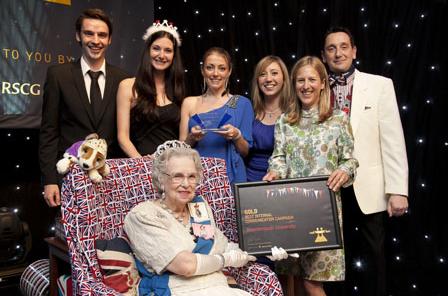 Last week the BU Research Blog won a prestigious Gold Heist Award in the Best Internal Communication Campaign category at a glittering awards ceremony in Leeds. HURRAY! 😀
Last week the BU Research Blog won a prestigious Gold Heist Award in the Best Internal Communication Campaign category at a glittering awards ceremony in Leeds. HURRAY! 😀
The Best Internal Communication Campaign category examines awareness campaigns aimed at staff, students or both. Judges were looking for a project with the purpose of improving internal knowledge, awareness and engagement. There were 10 institutions short-listed in the category.
The judges commented that the Research Blog was a innovative within the sector and a ‘great way to motivate and engage with staff, bringing a sense of community’.
 The Heist Awards have grown continually over the past 20 years to become the premier awards programme for Education Marketing within further and higher educaton and its aim is to recognise and celebrate professionalism and innovation in the sector.
The Heist Awards have grown continually over the past 20 years to become the premier awards programme for Education Marketing within further and higher educaton and its aim is to recognise and celebrate professionalism and innovation in the sector.
Thank you to everyone who contributes to the Research Blog by subscribing to the daily digest, adding posts, alerting us to news stories, adding comments, etc, and also to CEMP for designing and maintaining the Blog.
Thinking about public engagement as a pathway to impact and looking for inspiration?
RCUK, with support the National HE STEM programme, have put together some short case studies detailing how academics have used public engagement as a pathway to impact. You can find these case studies here.
What is particularly of interest with these case studies, is the importance that the featured academics place on developing two-case engagement, rather than simply disseminating findings to a wider audience.
If you would like some support to do something similar around your own research, please do contact me on redwards@bournemouth.ac.uk.
Another opportunity to develop public engagement activities within a wider programme of learning, is during the Festival of Learning that BU is running next year. You can find out more here with a deadline for applications on 31st July 2012. Again, if you would like some help to put together your application, please do contact me on redwards@bournemouth.ac.uk.

Importance of Publishing – and other PGR Researcher Development actvities (June 2012)
Updated sessions for the BU Researcher Development Programme for June 2012 are below.
Booking is essential as places are limited – details of how to book are listed under each session.
Importance of Publishing
- Date: Wednesday 13 June 2012
- Time: 9.30 am – 13:00 (with lunch provided)
- Room: TAG02
- Facilitators: see below
- Booking: graduateschool@bournemouth.ac.uk
- Outline: Publishing is an integral part of a researcher’s professional life and the workshop aims to outline the process of publishing research papers in journals and conference proceedings. A provisional timetable is detailed below:
- 09:30 – 10:00 – Introduction to the importance of publishing – Prof. Tiantian Zhang (Graduate School)
- 10:00 – 10:45 – Publishing in the Sciences – Speaker TBC
- 10:45 – 11:00 – Break
- 11:00 – 11:45 – Publishing in the Humanities – Prof. Stuart Allan (Media School)
- 11: 45 – 13:00 – Publishing’s Perspectives on Publishing – Prof. Tom Watson and Meet the Editors – Prof. Francis Biley and Prof. Edwin Van Teijlingen
- 13:00 – Lunch will be provided
Academic Writing Skills Course
- Outline: This workshop covers essential good practice in writing, editing techniques and methods of improving organisation
- Date: Monday 18 June 2012
- Time: 09.30 am – 4.30 pm (lunch will be provided)
- Room: P401, Poole House, Talbot Campus
- Facilitator: Sue Mitchell (external visitor)
- Booking: graduateschool@bournemouth.ac.uk FULLY BOOKED – places still available for the same workshop on 19 June (see below)
Academic Writing Skills Course
- Outline: This workshop covers essential good practice in writing, editing techniques and methods of improving organisation
- Date: Tuesday 19 June 2012
- Time: 09.30 am – 4.30 pm (lunch will be provided)
- Room: EBC704, Executive Business Centre, Lansdowne Campus
- Facilitator: Sue Mitchell (external visitor)
- Booking: graduateschool@bournemouth.ac.uk There are limited places available for this workshop, so book early to avoid disappointment!
Postgraduate Research Conference
- Outline: This annual conference is designed to showcase the best of BU’s postgraduate research and to provide a unique opportunity for PGRs to present their work within a learning environment. Our multi-disciplinary conference will allow for cross-school interaction as well as opportunities for collaboration, where appropriate. Full details can be found here
- Date: Thursday 28 June 2012
- Time: 09.30 am – 4.30 pm (lunch will be provided)
- Room: Thomas Hardy Suite
- Booking: graduateschool@bournemouth.ac.uk
Details of further workshops coming soon!
Details will be published on the BU Research Blog, so subscribe today to the BU Research Blog to keep in touch with current events to avoid the disappointment of missing out!
Increasing publication impact – publishing in journals covered by the main external publication databases
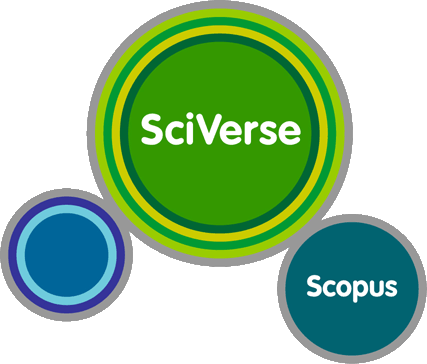 Publishing in journals covered by the main external publication databases, such as Scopus and the Web of Science, will give your research greater visibility and will ensure that citations received are counted in your citation metrics (for example, in your Scopus H-index). The journals that tend to be covered by these external databases are the ones produced by the big publishing houses – Wiley-Blackwell, Elsevier, Springer, etc. These journals are likely to have larger readerships and greater institutional subscriptions than journals published by smaller publishers, which will increase the potential visibility of your research and therefore the potential citations/downloads.
Publishing in journals covered by the main external publication databases, such as Scopus and the Web of Science, will give your research greater visibility and will ensure that citations received are counted in your citation metrics (for example, in your Scopus H-index). The journals that tend to be covered by these external databases are the ones produced by the big publishing houses – Wiley-Blackwell, Elsevier, Springer, etc. These journals are likely to have larger readerships and greater institutional subscriptions than journals published by smaller publishers, which will increase the potential visibility of your research and therefore the potential citations/downloads.
Excellence in public engagement: launch of the Bournemouth University Dementia Institute (BUDI)
You may already be aware that we have recently seen the launch of Bournemouth University’s Dementia Institute (BUDI), more details of which can be found on the Health and Social Care blog and BUDI’s website. This event brought together nearly 100 participants, two thirds of which had a professional interest in dementia, with a considerable proportion of the remainder attending for more personal reasons.
Encapsulating BU’s Fusion concept (with inclusion of research, teaching and practice), the launch event brought together what has been described as the three sides of the public engagement triangle. This includes transmitting (sharing results of previous research on dementia through presentations), receiving (learning from practitioners and service users about the key research issues) and collaborating (creating a dialogue to inform future research).
Part of BUDI’s key driving force is the need to promote high quality care and support for the population for dementia. Therefore, the process of public engagement is particularly important for BUDI, as it considers a key issue for Dorset – why does the county have the lowest level of dementia diagnosis, despite its elderly population? Currently available data does not provide an obvious answer to this, and it is likely that only by working with key stakeholders and the at risk population, that insights may be gained into this startling statistic.
BUDI Director, Prof Anthea Innes’ opening talk (What does dementia mean to you?) brought together some of her findings from her esteemed research career in a way that was accessible to the audience as a whole, but also sensitive to those for whom dementia is a highly emotive subject. Michele Board – a Senior Lecturer in the School of Health and Social Care and a senior nurse in the memory clinic at Royal Bournemouth and Christchurch Hospitals NHS Foundation Trust – then gave a powerful account of insights into how the individual’s experience can be improved from her experience of working in the memory clinic. Again, this was informative for those of us with limited knowledge and for the more expert attendee. The final part of the event focused around a panel discussion, chaired by Prof Gail Thomas, Dean of the School of Health and Social Care. Alongside the speakers, the panel included Karen Cosgrove from Alzheimers.org.uk and Steve Collins from Age UK who with their extensive practice experience helped generate a lively discussion, where knowledge was exchanged and attendees were able to flag up areas of potential future research.
During the launch, I had a strong sense that the event was enabling a genuine process of public engagement to occur between our academic community, practitioners and other key stakeholders. I am therefore, delighted to learn that the results of the event evaluation demonstrate that this was very much the case for many of the participants. I know that BUDI are planning far more public engagement activities, which is I think will be both hugely positive for the progression of the research, for those involved in professional practice as well as for those affected by dementia, both patients and carers. As an academic institution, we perhaps uniquely positioned to be able to bring such a range of stakeholders together, share world-class research, learn from those that are directly impacted by research findings and develop a research agenda that we can be confident is relevant to our fast-changing world. If you would like to know more about why it worked so well or are interested in learning more about how you could develop public engagement activities around your research, please do not hesitate to contact Dr Rebecca Edwards on redwards@bournemouth.ac.uk, or for more information about BUDI contact Professor Anthea Innes on ainnes@bournemouth.ac.uk
BUDI@ Alzheimer Research UK event
 On the 25th May 2012 Southampton Solent University hosted an annual Alzheimer’s Research UK (ARUK) public awareness event. BUDI (Bournemouth University Dementia Institute) was invited to set up a display and provide information about BUDI’s services and research. Clare Cutler from BUDI, along with scientists and clinicians from the local ARUK network demonstrated and provided information about Alzheimer’s disease and other dementias, current treatments and the latest research. The event was attended by many members of the public, carers and students. BUDI was able to provide information about the services it can provide and insight from ongoing research. The day was very well received by the public and was said to be an ‘excellent event”.
On the 25th May 2012 Southampton Solent University hosted an annual Alzheimer’s Research UK (ARUK) public awareness event. BUDI (Bournemouth University Dementia Institute) was invited to set up a display and provide information about BUDI’s services and research. Clare Cutler from BUDI, along with scientists and clinicians from the local ARUK network demonstrated and provided information about Alzheimer’s disease and other dementias, current treatments and the latest research. The event was attended by many members of the public, carers and students. BUDI was able to provide information about the services it can provide and insight from ongoing research. The day was very well received by the public and was said to be an ‘excellent event”.
Fusion Investment Fund workshops with John Wakeford next week
 John Wakeford from the Missenden Centre will be visiting BU on Thursday 7th June to run two workshops to help colleagues to develop and strengthen their applications to the Fusion Investment Fund (deadline 1st July). Attendees will need to provide a copy of their draft FIF proposal to Sam Furr no later than Wednesday 6th June at midday; this is to ensure John has enough time to read these prior to the session.
John Wakeford from the Missenden Centre will be visiting BU on Thursday 7th June to run two workshops to help colleagues to develop and strengthen their applications to the Fusion Investment Fund (deadline 1st July). Attendees will need to provide a copy of their draft FIF proposal to Sam Furr no later than Wednesday 6th June at midday; this is to ensure John has enough time to read these prior to the session.
There will be a morning and an afternoon session and lunch will be provided.
Thursday 7th June 2012, 09:30-13:30 – EB202, EBC (LC)
Thursday 7th June 2012, 12:30-16:30 – EB202, EBC (LC)
Similar sessions have been well attended previously and spaces are limited. Booking onto a session is easy, simply click here to be taken to the bookings page.
Bournemouth University Dementia Institute
Bournemouth University Dementia Institute (BUDI) was launched at a public open meeting on dementia on the 16th May. See our fledgling website for more details: www.bournemouth.ac.uk/dementia-institute
A University wide meeting open to all staff interested in working in the dementia field will be held on Thursday 14 June at the Business Centre (EB708) 10-12 followed by opprtunity to network over a light lunch. If you would plan on coming along can you let Michelle O’Brien know (mobrien@bournemouth.ac.uk) for catering purposes.
www.bournemouth.ac.uk/dementia-institute
How to use StratNav to explore BU’s strategy in relation to Research and Fusion
Last week the Vice-Chancellor launched StratNav as an interactive online tool to help you to navigate the delivery of the BU2018 strategy.
You can easily search StratNav for the elements of the plan that relate specifically to Research and Fusion:
1. Access StratNav here: http://strategicplan.bournemouth.ac.uk/
2. Select ‘Research’ or ‘Fusion’ from the drop down search box at the top right of the page
3. The Research or Fusion elements will be displayed and you can choose to show the results by the strategic themes and enablers – Creating, Inspiring, Sharing, Finance, People, Environment.
StratNav provides an excellent platform from which to explore the BU2018 plan.
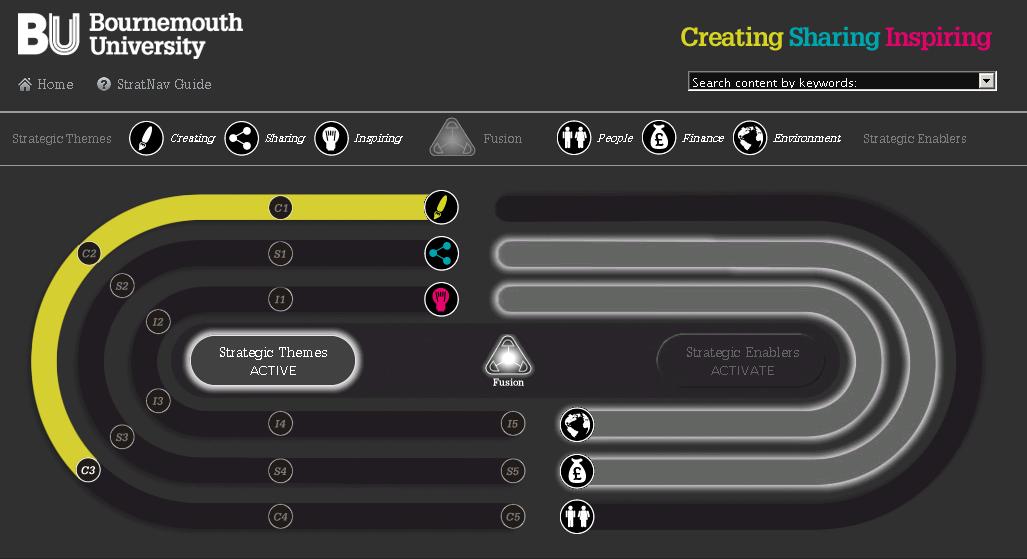











 SPROUT: From Sustainable Research to Sustainable Research Lives
SPROUT: From Sustainable Research to Sustainable Research Lives BRIAN upgrade and new look
BRIAN upgrade and new look Seeing the fruits of your labour in Bangladesh
Seeing the fruits of your labour in Bangladesh Exploring Embodied Research: Body Map Storytelling Workshop & Research Seminar
Exploring Embodied Research: Body Map Storytelling Workshop & Research Seminar Marking a Milestone: The Swash Channel Wreck Book Launch
Marking a Milestone: The Swash Channel Wreck Book Launch ECR Funding Open Call: Research Culture & Community Grant – Application Deadline Friday 12 December
ECR Funding Open Call: Research Culture & Community Grant – Application Deadline Friday 12 December MSCA Postdoctoral Fellowships 2025 Call
MSCA Postdoctoral Fellowships 2025 Call ERC Advanced Grant 2025 Webinar
ERC Advanced Grant 2025 Webinar Update on UKRO services
Update on UKRO services European research project exploring use of ‘virtual twins’ to better manage metabolic associated fatty liver disease
European research project exploring use of ‘virtual twins’ to better manage metabolic associated fatty liver disease